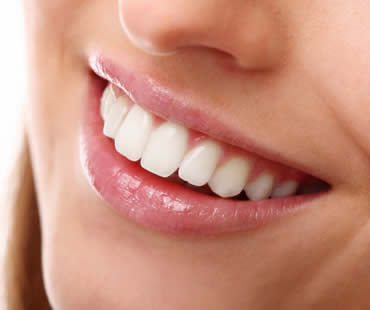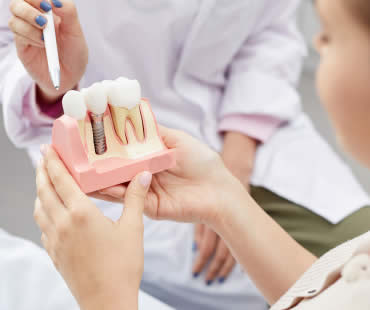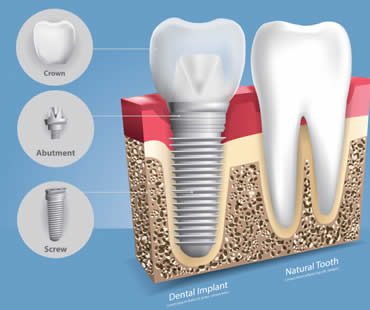
Jan 30, 2025 | Blog, Cosmetic Dentistry, Dental Topics 4
The Power of a Bright and Confident Smile
A smile can light up a room, ease tension, and communicate positive emotions. Studies have shown that smiling can even improve one’s mood, reduce stress levels, and boost overall well-being.
However, an important aspect of a confident smile is the appearance of teeth. Stained teeth can take away from the beauty of a smile and even cause individuals to hide their teeth or avoid smiling altogether.
The Negative Effects of Stained Teeth on Self-esteem and Social Interactions
The impact of stained teeth goes beyond mere aesthetics; it can also have negative effects on one’s self-esteem and social interactions. Individuals with discolored teeth may feel self-conscious or ashamed to show their teeth in public settings or in photos.
This could lead to avoiding social situations or feeling less confident in professional settings. Furthermore, studies have shown that first impressions are heavily influenced by physical appearance, including the appearance of teeth.
People with yellowed or stained teeth may be perceived as less attractive and less trustworthy than those with bright white smiles. In social situations such as job interviews or first dates, this could make all the difference in how one is perceived by others.
It is important to address tooth discoloration not only for better oral health but also for boosting confidence and improving social interactions. Fortunately, there are various options available for achieving a brighter smile – from over-the-counter products to professional treatments – which will be explored further in this article.
Understanding Teeth Stains
Types of Teeth Stains
Teeth stains can be categorized into three main types: extrinsic, intrinsic, and age-related. Extrinsic stains are on the surface of the teeth and are caused by external factors such as food, drinks, and smoking.
Intrinsic stains occur within the tooth’s structure and may be caused by trauma or certain medications taken during tooth development. Age-related stains are a combination of both extrinsic and intrinsic factors and develop over time due to wear and tear on the enamel.
Common Causes of Teeth Stains
There are several common causes of teeth stains that fall into two categories: lifestyle habits and environmental factors. Lifestyle habits such as smoking or using tobacco products can cause yellow or brown discoloration on teeth.
Consumption of certain foods or drinks such as coffee, tea, red wine, berries, soy sauce etc., also contribute to staining. Environmental factors like pollution or exposure to high levels of fluoride can also lead to teeth discoloration.
How to Identify the Type of Stain
Identifying the type of stain is important in choosing a whitening treatment that will effectively remove it. Extrinsic stains appear yellowish-brown in color while intrinsic stains are grayish-brown or reddish-brown.
Age-related stains result in a combination of both yellowish-brown and grayish-brown colors that appear deeper than extrinsic staining but lighter than intrinsic staining. A dental professional can help identify your type of stain accurately during an oral exam before suggesting a treatment plan for effective results; however it is still possible for individuals to self-diagnose their own staining patterns based on personal diet choices & lifestyle habits over time by conducting some research online about causes & effects of tooth discoloration
Over-the-counter Teeth Whitening Products
When it comes to whitening teeth, there are a variety of over-the-counter products available. These products range from toothpaste to strips and gels. Understanding the pros and cons of each type can help you choose what product will work best for your needs and lifestyle.
Types of whitening products
Toothpaste: Whitening toothpaste is a popular choice as it is easy to use and can be found at any local store. These toothpaste contain mild abrasives that help remove surface stains on the teeth. However, they may not whiten the deeper stains on your teeth.
Strips: Whitening strips are thin, flexible pieces of plastic coated with peroxide-based whitening gel. They are applied directly to the teeth and left on for a specified amount of time.
The length of time varies depending on the brand, but typically ranges from 20-30 minutes per session. Gels: Whitening gels are similar to strips but come in syringes or pens.
They contain peroxide gel that is applied directly onto the teeth with a brush or applicator tip. Gels should be left on for several minutes before rinsing off.
Pros and cons of each product
Toothpaste: Pros include its convenience and affordability. Cons include its inability to fully whiten deep stains.
Strips: Pros include their effectiveness in removing both surface- and deeper-level stains, as well as their ease-of-use (however, they can make speaking difficult while wearing them). Cons include their potential irritation for those with sensitive gums or teeth.
Gels: Pros include their effectiveness in removing both surface- and deeper-level stains (and without impeding speech). Cons include the potential for sensitivity or irritation for those with sensitive teeth or gums, and the need to leave it on for several minutes.
Tips for using over-the-counter products effectively
When using whitening products, it’s important to follow the directions that come with the product. Overuse of any product can lead to tooth sensitivity and even damage. Additionally, avoid consuming dark-colored foods or drinks such as coffee, tea, and red wine while undergoing a whitening regimen as they could counteract your effects.
If you are unsure which product is best suited for your needs and lifestyle, consult with your dentist. They can provide recommendations based on your specific dental history and goals.
Professional Teeth Whitening Options
While over-the-counter teeth whitening products can be effective, professional teeth whitening options offer a higher level of effectiveness and convenience. There are two main types of professional teeth whitening options: in-office procedures and at-home kits prescribed by dentists.
In-Office Whitening Procedures
In-office teeth whitening procedures offer the quickest and most effective way to whiten your teeth. These procedures involve applying a high concentration of bleaching agents to the teeth, which is activated with a special light or laser.
In-office procedures can typically whiten your teeth several shades in just one visit. The biggest advantage of in-office treatments is their quickness and effectiveness.
Additionally, the procedure is overseen by a dental professional who can monitor any potential side effects, making it safer than at-home treatments. However, in-office treatments tend to be more expensive than other options.
At-Home Professional Whitening Kits Prescribed By Dentists
At-home kits prescribed by dentists are another option for professional-grade teeth whitening. These kits contain custom-fitted trays that are filled with a bleaching solution and worn for a certain amount of time each day as directed by your dentist. One advantage of at-home kits is that they are less expensive than in-office treatments while still being highly effective.
They also offer the convenience of doing the treatment at home on your own schedule. However, at-home kits may take longer to achieve desired results compared to in-office treatments.
Pros and Cons of Professional Treatments
In-Office ProceduresAt-Home Kits Prescribed By DentistPros- Quick and effective results
– Monitored by dental professional- Less expensive than in-office procedures
– Highly effective
– Convenient to use at homeCons- More expensive than other options
– May cause sensitivity or discomfort
– Takes longer to achieve results compared to in-office procedures
– Trays can be uncomfortable or inconvenient to wear
Cost Comparison with Over-The-Counter Products
The cost of professional teeth whitening varies depending on the type of treatment chosen. In-office procedures tend to be the most expensive, with an average cost ranging from $500-1000 per session. At-home kits prescribed by dentists are generally less expensive, ranging from $300-500 on average.
In comparison, over-the-counter whitening products are typically the least expensive option, ranging from $20-100 depending on the product. However, their effectiveness may vary and they may require more frequent use for desired results.
While professional teeth whitening options may be more expensive than over-the-counter products, they offer a higher level of effectiveness and convenience. It is important to consult with your dentist or dental professional before trying any teeth whitening product or procedure to ensure it is safe and appropriate for your individual needs.
Natural Teeth Whitening Remedies
While over-the-counter and professional teeth whitening products can be effective, some people prefer to use natural remedies in an effort to avoid harsh chemicals or save money. However, it’s important to note that not all natural remedies are created equal and they may not be as effective as other methods.
DIY methods using household items (baking soda, hydrogen peroxide)
Baking soda is a common ingredient in DIY teeth whitening recipes because it’s abrasive enough to remove surface stains but gentle enough to avoid damaging tooth enamel. To use baking soda for teeth whitening, mix a small amount with water until it forms a paste and brush your teeth with it. Hydrogen peroxide can also be used as a whitening agent by mixing it with baking soda and brushing your teeth with the mixture.
Natural remedies such as oil pulling or activated charcoal
Oil pulling involves swishing oil (such as coconut or sesame) around in your mouth for several minutes each day. Some people believe this can help remove toxins from the body, including stains on the teeth.
Activated charcoal is another popular natural remedy that is believed to absorb impurities and stains from the teeth. To use activated charcoal for teeth whitening, mix a small amount with water until it forms a paste and brush your teeth with it.
Safety concerns with natural remedies
While some natural remedies may be safe for occasional use, they are not regulated like over-the-counter products or prescribed treatments, so there may be risks associated with using them frequently or long-term. For example, using baking soda too often may damage tooth enamel and cause sensitivity. Additionally, using activated charcoal too frequently can wear down tooth enamel over time due to its abrasive nature.
It’s important to talk to your dentist before trying any new teeth whitening remedy, including natural ones. Your dentist can help you determine which methods are safe and effective for your individual needs and ensure that you don’t cause harm to your teeth or gums.
Maintaining a Bright Smile
After investing time and money into whitening your teeth, it’s crucial to maintain their brightness. Here are some tips for preventing future stains and recommended oral hygiene practices:
Tips for Preventing Future Stains
The best way to prevent future stains is to avoid or limit the consumption of staining foods and drinks such as coffee, tea, red wine, and berries. If you can’t give up your morning cup of coffee, try using a straw or drinking it quickly instead of sipping it throughout the day.
Another way to prevent stains is by practicing good oral hygiene habits such as brushing your teeth after meals and flossing daily. This helps remove any food particles that can lead to plaque buildup and discoloration.
Recommended Oral Hygiene Practices
In addition to brushing and flossing regularly, there are other oral hygiene practices that can help maintain a bright smile. Using mouthwash after brushing helps kill bacteria that cause bad breath and plaque buildup. It’s also important to replace your toothbrush every three months or sooner if the bristles become frayed.
Using an electric toothbrush can also be more effective in removing stains than a manual one. Regular visits to the dentist for cleanings are crucial in maintaining dental health and preventing future stains.
Dentists can remove any surface stains that have accumulated since your last visit while also checking for early signs of decay or gum disease. By following these tips for preventing future stains and recommended oral hygiene practices, you’ll be able to enjoy a bright smile long after your initial teeth whitening treatment.
Conclusion
Recap the Importance of a Confident Smile
A bright and confident smile is more than just a physical attribute, it can boost your self-esteem and positively impact your social interactions. Stained teeth can have the opposite effect, causing embarrassment and even shame. Understanding the different types of stains and available whitening methods can help you achieve that sparkling smile you always wanted.
Encourage Readers to Try Different Teeth Whitening Methods
Trying different teeth whitening methods can be a game-changer for those who struggle with stained teeth. From over-the-counter products to natural remedies to professional treatments prescribed by dentists, there are plenty of options available. It’s important to keep in mind that no one method works for everyone, so it may take some trial and error to find what works best for you.
Also, maintaining good oral hygiene practices is key in preventing future stains. Remember, a beautiful smile is within reach – don’t be afraid to try different methods until you find what works best for you!
Take the first step towards optimal oral hygiene. Reserve your dental appointment at our Bingham Farms dental office now and experience personalized care.

Jan 23, 2025 | Blog, Cosmetic Dentistry, Dental Topics 3
When you meet someone for the first time, they notice things about you: your hair, your eyes, your handshake, but most of all they notice your smile. A bright, even smile, freely given, can leave the most positive impression you can make on a stranger. It sends a message of friendliness, confidence and ease. As you continue speaking to that stranger, your smile, your ready laugh and your comfortable manner all send the right signals of health and well-being.
When you don’t have a nice smile, that confidence is lacking. Smiles become tight-lipped, heads are bowed down and laughter is smaller and speech can become clipped. You avoid eating in public and when you do, you cover your mouth constantly with your hand to hide your teeth. Bad breath from bad teeth could lead you to fear getting close with someone. The message sent here is one of avoidance and embarrassment and shame.
Bad teeth and poor oral health can hold us back in our personal lives as well as our professional ones. Smiles that are decayed and unattractive send signals that we never intend. Correct or not, they can indicate histories of poverty, a lack of education or poor hygiene habits. These indications, even when they’re wrong, can lead to being passed over for promotions, for dates or for a variety of social opportunities.
Don’t be this person. Take steps now to work with a cosmetic dentist to change everything you don’t like about your smile. From large changes to small ones, a skilled cosmetic dentist can makeover your smile to be the bright, beautiful smile you’ve always desired.
Whether you need to correct some cavities and to revamp your oral hygiene habits at home, or if you need braces to correct alignment issues, a cosmetic dentist can help you. Dental veneers can change the color, shape and length of one or more teeth, and missing or gapped teeth can be replaced with dental implants or dental bridges.
Don’t let your smile hold you back another minute. Talk to a cosmetic dentist today about your smile makeover.
Do you live in Bingham Farms or the surrounding area? Our team is ready to help you achieve your smile goals. Schedule your appointment today.

Jan 16, 2025 | Blog, Dental Topics 3, Implant Dentistry
Failure to take good care of your teeth can result in tooth loss, and so can issues like trauma or aging. No matter why you lose a tooth or multiple teeth, you’ll want a secure, comfortable and attractive replacement. Dental implants come to the rescue with all of these benefits and more.
A dental implant involves placing a titanium rod into your jaw to provide a sturdy new root, and then topping it off with an artificial tooth. You’ll end up with a fully functional tooth that works, looks, and feels just like a natural tooth.
There are a number of advantages that dental implants bring:
- prevents movement of neighboring teeth
- does not negatively impact adjacent teeth
- looks aesthetically appealing
- does not slip or move in any way
- provides comfortable fit
- lasts a lifetime with proper care
- requires no special maintenance
Dental implants are inserted surgically while you are under local anesthesia, so you won’t feel anything during the procedure. There may be minor swelling or minimal pain that can be managed by over-the-counter remedies, and those side effects should dissipate within a couple of days. Risks are low and the long-term results are very good. The implant fuses with your body and you won’t even know it’s there once it has healed.
Ongoing care for your dental implant simply involves regular brushing and flossing, and dental checkups to ensure continued good oral health. You should be able to expect your fully restored smile to look and feel great for years to come.
Are dental issues holding you back? Take control of your oral health by booking an appointment with our experienced team at our Bingham Farms dental office.

Jan 9, 2025 | Blog, Dental Topics 4, Implant Dentistry
The Basics: Understanding Dental Implants and Their Benefits
Dental implants are artificial tooth roots that are placed into the jawbone to support a replacement tooth or bridge. They are an excellent option for those who have lost one or more teeth due to injury, decay, or periodontal disease. Unlike traditional dentures or bridges, dental implants are permanent and look and feel like natural teeth.
The benefits of dental implants go beyond just aesthetics. They can also help maintain the structure of your face, prevent bone loss in your jaw, and improve your ability to eat and speak properly.
The Importance of Long-Term Care for Dental Implants
While dental implants offer many benefits, they require proper care in order to last a lifetime. Long-term care is essential to ensure the health and longevity of your implants. Without regular maintenance, complications such as gum disease or implant failure can arise.
Taking care of your dental implants involves daily oral hygiene practices such as brushing and flossing regularly along with regular check-ups with your dentist. It’s important to work closely with your dentist on developing a customized maintenance plan that addresses any concerns you may have based on the specific needs of your implant(s).
It’s also important to take into consideration lifestyle factors that could affect the health of your implant(s), such as smoking cessation (if applicable), diet choices, overall oral hygiene practices etc. By prioritizing long-term care for your dental implants you can enjoy all their benefits without worrying about their longevity over time.
Daily Care for Dental Implants
Brushing techniques and recommended toothbrushes
Brushing your teeth twice a day is essential to maintain good oral hygiene. However, it becomes more crucial when you have dental implants. It is also essential to brush them gently using a soft-bristled brush.
A hard-bristled brush can scratch the implant surface, which leads to bacteria build-up and plaque formation. To prevent this from happening, it’s best to use an electric toothbrush as they are gentler than manual toothbrushes.
Flossing and interdental cleaning tools
Flossing should be done regularly but gently around the implant sites as well as other teeth. It is important not to snap the floss through or pull too hard on it around your implant site as it can cause damage or dislodge the implant crown.
Interdental brushes are other useful tools that can be used instead of flossing in some cases. Interdental brushes come in different sizes, so it’s important to use the right size for your specific spaces.
Mouthwash and other products to maintain oral hygiene
Mouthwashes can help remove bacteria that cannot be reached by brushing or flossing alone, but not all mouthwashes are created equal! Some contain alcohol and other harsh ingredients which can irritate your gums or damage your implants over time.
Instead look for an antibacterial mouthwash that does not contain alcohol or harsh chemicals like chlorine dioxide. In addition to these three daily care techniques, there are also other products available that can help maintain oral hygiene such as fluoride gels, which help strengthen teeth and prevent cavities; tongue scrapers which help remove bacteria from the surface of the tongue; and gum stimulators that promote healthy gum tissue around implants.
Remember that good dental hygiene is essential to keep your implants healthy and looking great. By incorporating these daily care techniques into your routine, you can ensure the longevity of your dental implants for years to come.
Diet and Lifestyle Considerations
Foods to Avoid or Limit to Prevent Damage to Implants
When it comes to dietary considerations for dental implant care, certain foods should be avoided or limited due to their potential impact on implants. Hard and crunchy foods, such as nuts or hard candy, can put undue pressure on implants and cause damage over time.
Sticky and chewy foods, such as caramel or taffy, can also be problematic as they can adhere to the implant surface and cause bacteria buildup. Additionally, acidic foods and drinks (e.g., citrus fruits or soda) can contribute to erosion of the protective enamel layer of teeth, which in turn leaves the implant more vulnerable to damage.
Smoking Cessation and Its Impact on Implant Longevity
Smoking is a major contributor to oral health problems in general, but it has a particularly negative impact on dental implants. Smoking slows down the healing process post-surgery which could prolong osseointegration – where the implant fuses with the jawbone – which is critical for long-term success of dental implants. Smoking causes bone loss too which makes it more difficult for patients who still choose smoking after implant placement because they are making their own maintenance plan more complicated.
Regular Exercise and Its Impact on Overall Oral Health
While exercise may not seem like an obvious consideration when it comes to dental implant care, regular physical activity has been shown to have positive effects on overall oral health. Blood flow is increased during exercise that helps keep your gums healthy by reducing inflammation (which can lead to gum disease) while simultaneously increasing saliva production that helps prevent tooth decay by neutralizing acids produced by bacteria in plaque. Even something as simple as brisk walking or jogging once a day will do wonders for your oral health!
Regular Check-Ups
The Importance of Regular Check-Ups with a Dentist
While dental implants are designed to last for many years, they do require ongoing care and maintenance to remain healthy. One of the most important aspects of this care is regular check-ups with a dental professional. These appointments allow your dentist or periodontist to monitor the health of your implants and identify any potential issues before they become more serious.
Frequency of Check-Ups and What to Expect During Appointments
The frequency of check-ups will depend on your individual needs and the recommendations provided by your dental professional. In general, most patients will require at least two check-ups per year, although some may need more frequent appointments if they have specific risk factors for implant failure.
During these appointments, your dentist or periodontist will perform a comprehensive examination of your mouth, including an assessment of the condition of your gums and jawbone. They may also take x-rays or other imaging studies to further evaluate the health and stability of your implants.
In addition to these diagnostic tests, you can expect your dental professional to provide guidance on how best to care for your implants at home. This may include tailored advice on brushing techniques, flossing methods, and other strategies that can help you maintain optimal oral health between visits.
By following these recommendations and attending regular check-ups with a dental professional, you can minimize the risk of complications related to dental implants. With proper care and attention over time, you can enjoy all the benefits that come with this advanced tooth replacement option – including improved function, enhanced aesthetics, and greater confidence in everyday life.
Potential Complications with Dental Implants
Common complications that may arise over time
While dental implants have a high success rate, complications can occur over time that may affect their longevity. One of the more common issues is peri-implantitis, which is an infection of the tissue surrounding the implant.
Other complications include implant fracture or loosening, nerve damage, and bone loss around the implant site. It’s important to be aware of these potential issues and take steps to prevent them through proper oral hygiene and regular check-ups with your dentist.
How to identify warning signs of potential issues
Regular self-checks are important in identifying any potential issues with your dental implants. If you notice redness, swelling or tenderness around the implant site, it could be a sign of peri-implantitis. Pain or discomfort when biting down on food could indicate implant fracture or loosening.
Numbness or tingling sensation in the surrounding area could suggest nerve damage. If you experience any of these symptoms, it’s important to seek medical attention right away to prevent further complications from occurring.
It’s also important to keep up with regular check-ups with your dentist as they will be able to identify any underlying issues before they become major problems. During these appointments, your dentist will perform a thorough exam and potentially order x-rays or other imaging tests to ensure everything is functioning properly.
While dental implants are a great way to replace missing teeth and improve overall oral health, it’s important to be aware of potential complications that may arise over time. By taking steps such as proper daily care for your implants and regular check-ups with your dentist, you can help ensure their longevity and maintain optimal oral health for years to come.
Long-Term Maintenance Plan for Dental Implants
Customized maintenance plan based on individual needs
Once you have dental implants, it’s critical to have a long-term maintenance plan to ensure their longevity. Every individual’s dental needs are different, so it’s essential to have a personalized care plan created by your dentist or periodontist.
They’ll evaluate your oral health and the condition of your implants to create a customized care system that works best for you. This maintenance plan will include daily cleaning and hygiene habits, such as brushing, flossing, and using mouthwash or other prescribed products.
Importance of following the maintenance plan for optimal implant health
Following your personalized long-term maintenance plan is crucial for maintaining optimal implant health. Adhering to this program can help avoid complications that could lead to further issues down the road.
When creating your program, be sure to discuss any current oral hygiene habits with your dentist or periodontist so they can tailor recommendations based on what you’re already doing well. Be willing to make any adjustments needed based on their advice.
Your dentist may recommend certain products like interdental brushes that may work better than traditional flossing in removing plaque buildup around implants. It’s important not to skip visits with your dentist or periodontist since they will identify potential issues early on and take steps needed like deep cleanings in order to keep implants healthy.
The bottom line? If you want long-lasting dental implant results that look and feel natural while lasting many years, establish a regular routine of good oral hygiene practices from day one – AND stick with them!
Do you live in Bingham Farms or the surrounding area? Our team is ready to help you achieve your smile goals. Schedule your appointment today.

Jan 2, 2025 | Blog, Dental Topics 3, Implant Dentistry
Restoring a missing tooth is not as unnatural as you might think with the help of dental implants. These restorations have transformed the ability of dentists to make your smile complete and fully functional without the worries of cumbersome dentures or bridges.
Dental implants involve surgically placing a titanium rod into the jaw bone, which will then fuse with the bone to become a part of your body. A trusted, experienced dentist or oral surgeon is the best professional for this procedure. The implant provides a stable and secure base for a replacement tooth which is later placed on top of the rod.
Most people with missing teeth are candidates for dental implants, although your dentist will perform an examination to make sure. Healthy gums and ample strong bones are required for a successful dental implant treatment.
There are two main types of dental implants. Subperiosteal is designed for patients with a shallow jaw bone that does not allow for rebuilding, so these implants are placed under the gums. Endosteal is for patients with a thick jaw bone, which is ideal for the implant being placed into the jaw bone using plates, screws and cylinders for support. Your dentist will advise which type of implants are best for you.
Once the implant surgery is performed, the area will be allowed to heal for up to a couple of months so that the artificial tooth or crown placed on top will be able to successfully complete the procedure. Once the entire treatment is finished, you’ll have a fully functional, comfortable and secure new tooth and root.
No special maintenance is required with dental implants. Normal brushing and flossing is recommended, as well as regular dental checkups to guarantee good oral health. Implants are made to last a lifetime with proper oral care. With this advanced treatment that dentistry offers today, you can expect a worry-free restoration that gives you back your smile.
Take the first step towards optimal oral hygiene. Reserve your dental appointment at our Bingham Farms dental office now and experience personalized care.

Dec 26, 2024 | Blog, Dental Topics 3, Family Dentistry
Family dentists care about you and your teeth from the moment you enter the world until the moment you leave it. They want to get to know you – and your teeth – and they have the expertise, knowledge, and skill to care for a child’s baby teeth and for his or her adult teeth. A family dentist focuses on preventative care, aiming to avoid any serious dental complications as you age.
Family dentistry offices are generally friendly, warm, and comfortable. They are specifically designed to put nervous or anxious children and adults at ease. The staff strives to build a relationship with each member of your family, offering a lifetime of dental care and advice on any issues that might arise.
A family dentist in Bingham Farms could treat more than one member of your family in a single visit. Booking more than one appointment per visit is extremely convenient, and it can save you valuable time and effort by allowing you to be seen while your spouse or child is seen in an adjacent area. Don’t drive all over town for your family’s dental needs; see a family dentist instead!
Your family dentist will provide you and your family with the necessary oral hygiene skills needed to have a lifetime of good oral health. Your family dentist will ensure that each member of your family has the latest recommendations regarding brushing, flossing, and rinsing to prevent tooth decay and plaque between appointments.
A family dentist provides all of the services a standard dentist does, such as regular dental cleanings, check-ups, and x-rays. Other preventative treatments include sealants and fluoride treatments. A family dentist is able to treat cavities with fillings or to handle gum disease. Basic cosmetic dentistry procedures like tooth whitening are also offered.
The primary difference for a family dentist is the length of time a family dentist wants to see you. A family dentist can treat you for the rest of your life, and will use the knowledge about you and your particular oral health history to make the best decisions regarding your care in any situation that might arise.
Are dental issues holding you back? Take control of your oral health by booking an appointment with our experienced team at our Bingham Farms dental office.






